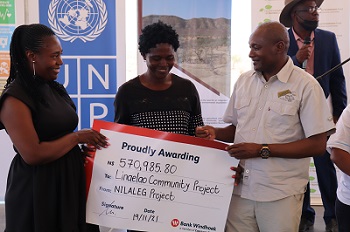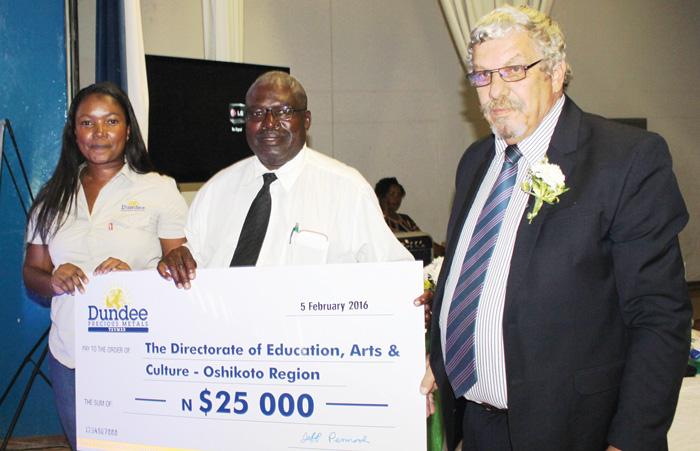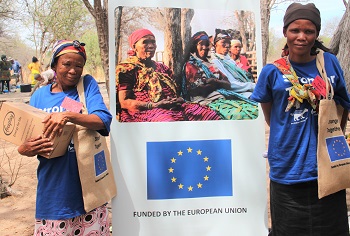
Local communities receive then grants under environmental funding

The Namibia Integrated Landscape Approach for Enhancing Livelihoods and Environmental Governance to Eradicate Poverty (NILALEG) last week presented ten grants under three investment windows, namely crop and rangeland management, agroforestry and nature-based enterprise.
The grants have a combined monetary value of N$6,828, 736.
In his welcoming remarks, the Governor of the Kunene Region, Hon Marius Sheya, said, “I am confident that if the NILALEG project is successfully implemented, it will result in a paradigm shift of our rural communities in the target landscapes, and subsequent positive project impacts for the region and other regions where it will be implemented.”
Introducing the overview of the project, NILALEG Project Manager, Jonas Nghishidi said the “project promotes an integrated landscape management approach in key agricultural and forestry landscapes, reducing poverty through sustainable nature-based livelihoods, protecting biodiversity and restoring forests as carbon sinks, and promoting Land Degradation Neutrality.”
In delivering a statement on behalf of the Environmental Investment Fund of Namibia, Benedict Libanda, Chief Executive noted that “This project is unique in many ways. It utilizes a landscape approach to address environmental and climate-induced threats to Namibian livelihoods. This approach seeks to provide tools and concepts for managing land to achieve social, economic, and environmental objectives in areas where agriculture, forest management, and other productive land uses compete with environmental and biodiversity goals.”
Anne Madzara, the interim UNDP Deputy Resident Representative said this project directly contributes to the Sustainable Development Goal Number 15, which deals with Life on Land. This goal seeks to take immediate and substantial steps to eliminate natural habitat destruction, stop biodiversity loss and, by 2023, protect and avoid the extinction of endangered species.”
Madzara further noted that “Partnership must continue to be at the heart of our strategy.”
“We should have the humility to acknowledge the essential role of other actors while maintaining full awareness of our unique convening power. These grants being extended to communities are therefore a clear demonstration of a strong commitment to partnerships that facilitate the voice and agency of local communities … nothing without local communities for local communities if we want to achieve sustainable growth and ecological integrity,” she added.
Meanwhile, Hon Pohamba Shifeta, Minister of Environment, Forestry and Tourism, said “It is without a doubt that these grants will help enhance livelihoods of our people and assist in meeting the expected outputs of the project through the reduction of poverty, protecting and restoring forests as carbon sinks, biodiversity conservation and promoting Land Degradation Neutrality.”
Shifeta is confident that they are on the right track to improve the living standards of the people as a result of deliberate government interventions that put livelihoods at the centre of the development agenda and the overall attainment of the global commitment through the Sustainable Development Goals.












































